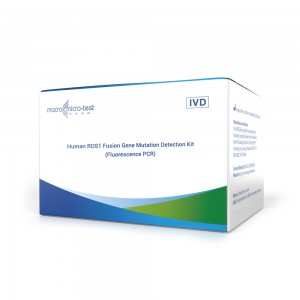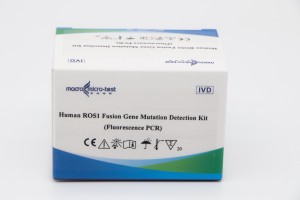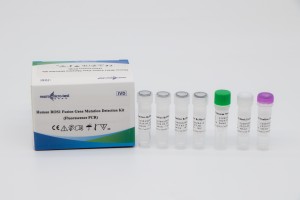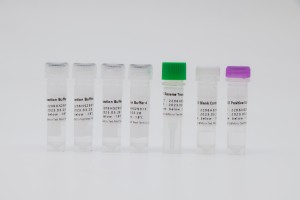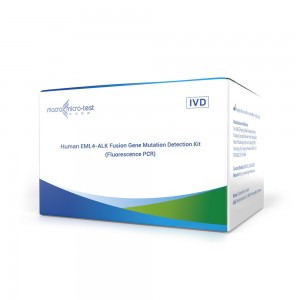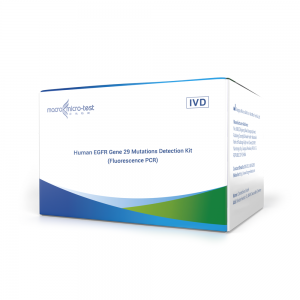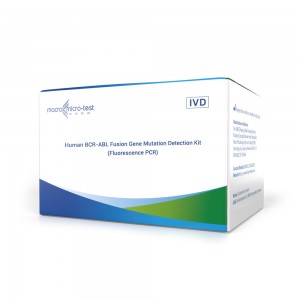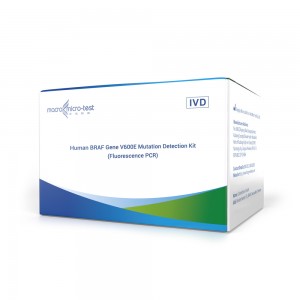Human ROS1 Fusion Gene Mutation
Product name
HWTS-TM009-Human ROS1 Fusion Gene Mutation Detection Kit (Fluorescence PCR)
Certificate
CE
Epidemiology
ROS1 is a transmembrane tyrosine kinase of the insulin receptor family. ROS1 fusion gene has been confirmed as another important non-small cell lung cancer driver gene. As a representative of a new unique molecular subtype, the incidence of ROS1 fusion gene in NSCLC About 1% to 2% ROS1 mainly undergoes gene rearrangement in its exons 32, 34, 35 and 36. After it is fused with genes such as CD74, EZR, SLC34A2, and SDC4, it will continue to activate the ROS1 tyrosine kinase region. Abnormally activated ROS1 kinase can activate downstream signaling pathways such as RAS/MAPK/ERK, PI3K/Akt/mTOR, and JAK3/STAT3, thereby participating in the proliferation, differentiation and metastasis of tumor cells, and causing cancer. Among ROS1 fusion mutations, CD74-ROS1 accounts for about 42%, EZR accounts for about 15%, SLC34A2 accounts for about 12%, and SDC4 accounts for about 7%. Studies have shown that the ATP-binding site of the catalytic domain of ROS1 kinase and the ATP-binding site of ALK kinase have a homology of up to 77%, so the ALK tyrosine kinase small molecule inhibitor crizotinib and so on have obvious curative effect in the treatment of NSCLC with fusion mutation of ROS1. Therefore, detection of ROS1 fusion mutations is the premise and basis for guiding the use of crizotinib drugs.
Channel
| FAM | Reaction Buffer 1, 2, 3 and 4 |
| VIC(HEX) | Reaction Buffer 4 |
Technical Parameters
|
Storage |
≤-18℃ |
|
Shelf-life |
9 months |
|
Specimen Type |
paraffin-embedded pathological tissue or sliced samples |
|
CV |
<5.0% |
|
Ct |
≤38 |
|
LoD |
This kit can detect fusion mutations as low as 20 copies. |
|
Applicable Instruments: |
Applied Biosystems 7500 Real-Time PCR SystemsApplied Biosystems 7500 Fast Real-Time PCR Systems
SLAN ®-96P Real-Time PCR Systems QuantStudio™ 5 Real-Time PCR Systems LightCycler®480 Real-Time PCR system LineGene 9600 Plus Real-Time PCR Detection System MA-6000 Real-Time Quantitative Thermal Cycler BioRad CFX96 Real-Time PCR System BioRad CFX Opus 96 Real-Time PCR System |
Work Flow
Recommended extraction reagent: RNeasy FFPE Kit (73504) from QIAGEN, Paraffin Embedded Tissue Section Total RNA Extraction Kit(DP439) from Tiangen Biotech(Beijing) Co.,Ltd.


